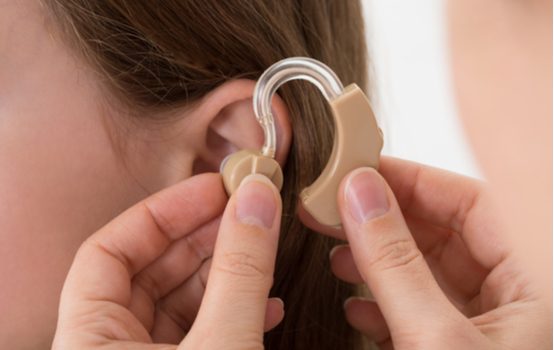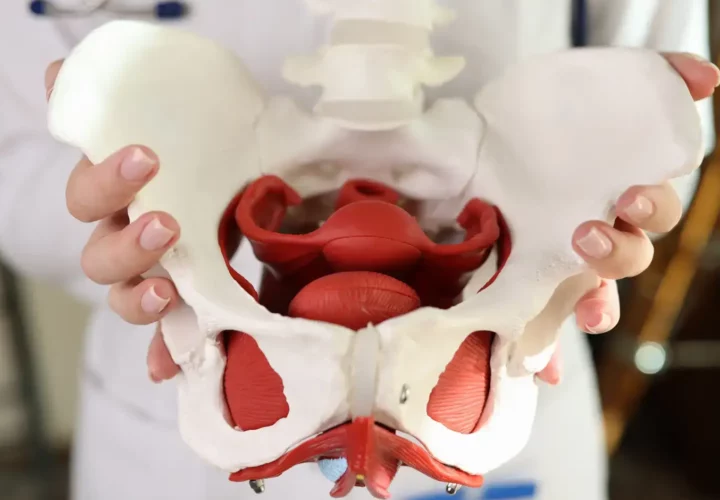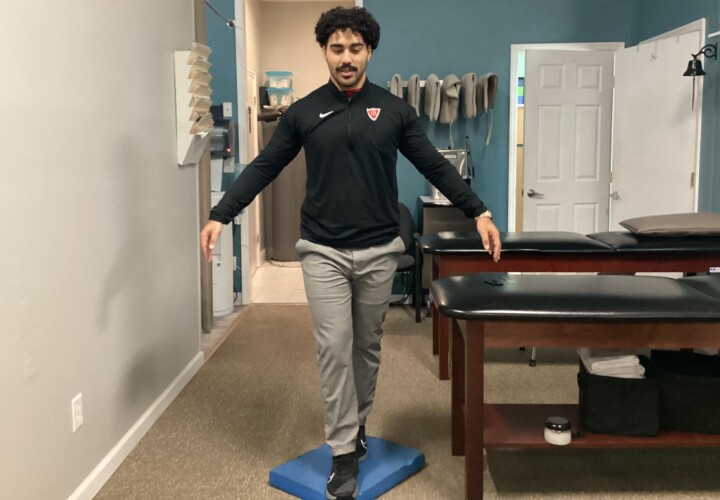In the United States about 1 in 4 people between 65-74 years have disabling hearing loss. For people over 75 years, it is every 1 in 2. The National Institutes of Health states, “As many as 28.8 million Americans could benefit from wearing hearing aids, but less than a third of that population actually uses them.” On average, it takes people with hearing loss 10 years to do something about it.
Hearing aids do more than just help you hear, they help the brain remember sounds you cannot hear. Untreated hearing loss affects a person’s quality of life and their brains ability to remember common everyday sounds. Because the hearing nerves lose function and can no longer channel sound signals to the brain, the brain will “forget” the sounds over time. In return, the brain becomes unable to understand these sounds.
University of Maryland Research
The University of Maryland Department of Hearing and Speech Sciences did a study on hearing aids. They tested hearing aids on hearing, people’s memory, and brain function. Over a six-month period, first time hearing aid users were monitored. The participants fell between mild to moderate hearing loss and went through a variety of tests. When the six months was up, participants had shown an improvement in memory, neural speech processing, and had a greater ease of listening due to the hearing aid. Dr. Anderson, who led the research team stated, “Our results suggest that the benefits of auditory rehabilitation through the use of hearing aids may extend beyond better hearing and could include improved working memory and auditory brain function.” She also stated, “In effect, hearing aids can actually help reverse several of the major problems with communication that are common as we get older.”![]()
American Journal of Audiology Research
Another study done in 2016 by the American Journal of Audiology found improved brain function in people with hearing loss. The participants wore their hearing aids for eight hours a day for six months. Each participant was tested to measure their working memory, selective attention, and processing speed. At the end of the six months, there was significant improvement. Memory had improved by 14% with selective attention improving by 20%. In terms of processing speed, the time increased by .2 seconds. Overall the time increased from 1.4 seconds to 1.2 seconds, which is huge.
American Geriatrics Society Research
The Journal of American Geriatrics Society found that using a hearing aid can make problems such as dementia, depression, and anxiety less likely to occur. Dr. Mahmoudi from the University of Michigan said, “Though hearing aids can’t be said to prevent these conditions, a delay in the onset of dementia, depression and anxiety, and the risk of serious falls could be significant both for the patient and for the costs to the Medicare system.” Their study looked at data from 115,000 people who were over 66 years old and had hearing loss. Each one of them had insurance with Medicare Health Maintenance Organization or HMO. The participants were tracked from 1 year before their diagnosis to 3 years after their diagnosis. Being tracked for this amount of time allowed the researchers to see any new diagnosis of dementia, depression, anxiety, or fall related injuries.
When comparing results, researchers saw a large difference between the people who wore a hearing aid to those who did not. Just 12% of the participants diagnosed with hearing loss decided to use a hearing aid. Wearing the hearing aid reduced the risked of being diagnosed with dementia and Alzheimer’s by 18%. The risk of being diagnosed with depression or anxiety decreased by 11%. Lastly, the risk of fall related injuries decreased by 13%.
Using a hearing aid is so beneficial. From memory improvement to increased processing speed, hearing aids are something that should not be overlooked.



